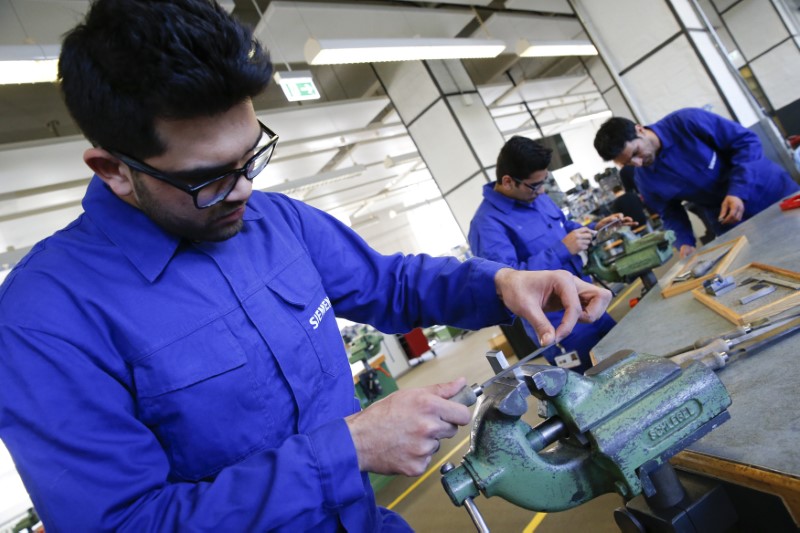FRANKFURT (Reuters) - Immigrants have made a large contribution to the working-age population of the euro zone since 2013 and are likely also boosting its labour force, particularly in Italy and Germany, the European Central Bank said on Thursday.
A huge influx of migrants in the past few years has become a major campaign topic ahead of general elections in Germany and Italy, where some parties say it is exacerbating unemployment in some areas.
In a regular report, the ECB said immigrants were likely supporting the size of the euro zone labour force, which includes both employed and unemployed people and contributes to calculations of potential economic growth, but excludes those not looking for work.
"Immigration has made a large positive contribution to the working-age population during the recovery, reflecting primarily the inflow of workers from new EU Member States," the ECB said in its economic bulletin.
"In turn, this is likely to also have had a significant impact on the labour force, particularly in Germany and Italy, but also in some smaller euro area economies."
Germany holds a general election at the weekend, while Italians are due to go to the polls next year. Anti-immigration parties have been winning support ratings of 10 percent or more in both countries.

The ECB said the labour force had continued to increase throughout the crisis, albeit at a slower pace than before 2007. Spain was a notable exception, however, due to heavy net migration out of the country.